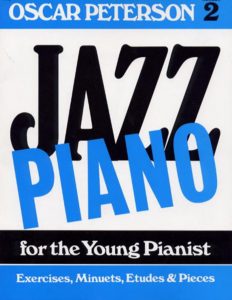Oscar Peterson – The Bach Suite: Allegro (with sheet music)

Oscar Peterson
Oscar Peterson was one of the greatest piano players of all time. A pianist with phenomenal technique on the level of his idol, Art Tatum, Peterson‘s speed, dexterity, and ability to swing at any tempo were amazing. Very effective in small groups, jam sessions, and in accompanying singers, O.P. was at his absolute best when performing unaccompanied solos.
Please, subscribe to our Library. Thank you!
His original style did not fall into any specific idiom. Like Erroll Garner and George Shearing, Peterson‘s distinctive playing formed during the mid- to late ’40s and fell somewhere between swing and bop. Peterson was criticized through the years because he used so many notes, didn’t evolve much since the 1950s, and recorded a remarkable number of albums. Perhaps it is because critics ran out of favorable adjectives to use early in his career; certainly it can be said that Peterson played 100 notes when other pianists might have used ten, but all 100 usually fit, and there is nothing wrong with showing off technique when it serves the music.
As with Johnny Hodges and Thelonious Monk, to name two, Peterson spent his career growing within his style rather than making any major changes once his approach was set, certainly an acceptable way to handle one’s career. Because he was Norman Granz‘s favorite pianist (along with Tatum) and the producer tended to record some of his artists excessively, Peterson made an incredible number of albums. Not all are essential, and a few are routine, but the great majority are quite excellent, and there are dozens of classic Standards.
Without doubt, Oscar Peterson was one of the giants of jazz piano. His illustrious career spanned almost seven decades, and he played with some of the biggest names in jazz, including Ella Fitzgerald, Count Basie and Herbie Hancock. Duke Ellington called him the “Maharajah of the keyboard,” while Count Basie remarked, “Oscar Peterson plays the best ivory box I’ve ever heard.”
Born in a poor neighborhood of Montreal, Peterson became a piano virtuoso at an early age, and credits his sister Daisy Sweeney with expanding his musical horizon. Under his sister’s tutelage, Peterson mastered the core classical repertory, including the preludes and fugues by Johann Sebastian Bach. Bach’s continued influence inspired the composition of the Bach Suite, first released on the 1986 album “Oscar Peterson Live!”
In 1960, Peterson established the Advanced School of Contemporary Music in Toronto, which lasted for three years. He made his first recorded set of unaccompanied piano solos in 1968 (strange that Granz had not thought of it) during his highly rated series of MPS recordings. With the formation of the Pablo label by Granz in 1972, Peterson was often teamed with guitarist Joe Pass and bassist Niels Pedersen.
He appeared on dozens of all-star records, made five duet albums with top trumpeters (Dizzy Gillespie, Roy Eldridge, Harry “Sweets” Edison, Clark Terry, and Jon Faddis), and teamed up with Count Basie on several two-piano dates. An underrated composer, Peterson wrote and recorded the impressive “Canadiana Suite” in 1964 and has occasionally performed originals in the years since. Although always thought of as a masterful acoustic pianist, Peterson has also recorded on electric piano (particularly some of his own works), organ on rare occasions, and even clavichord for an odd duet date with Joe Pass.
One of his rare vocal sessions in 1965, With Respect to Nat, reveals that Peterson‘s singing voice was nearly identical to Nat King Cole‘s. A two-day reunion with Herb Ellis and Ray Brown in 1990 (which also included Bobby Durham) resulted in four CDs. Peterson was felled by a serious stroke in 1993 that knocked him out of action for two years. He gradually returned to the scene, however, although with a weakened left hand. Even when he wasn’t 100 percent, Peterson was a classic improviser, one of the finest musicians that jazz has ever produced.
The pianist appeared on an enormous number of records through the years. As a leader, he has recorded for Victor, Granz‘s Clef and Verve labels (1950-1964), MPS, Mercury, Limelight, Pablo, and Telarc.
Best site for Jazz sheet music transcriptions download.
Browse in the Library:
and subscribe to our social channels for news and music updates:
